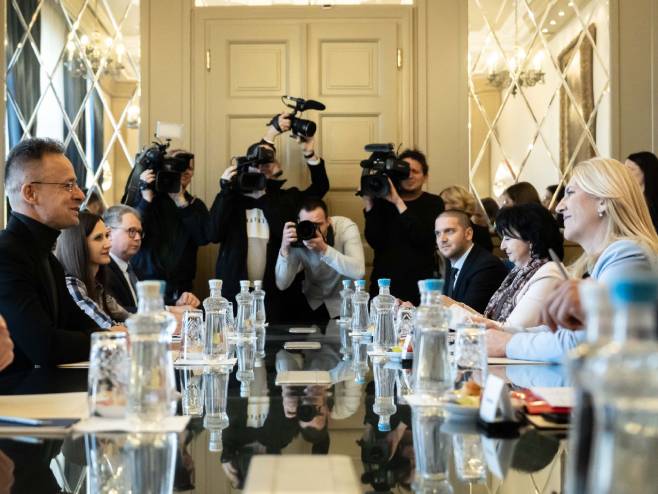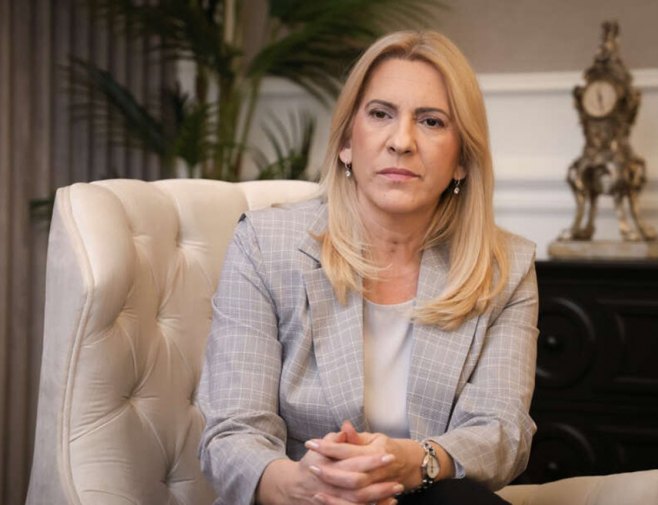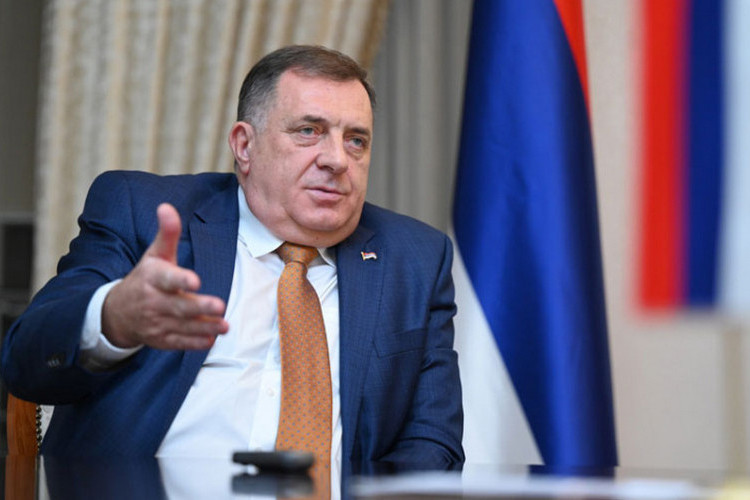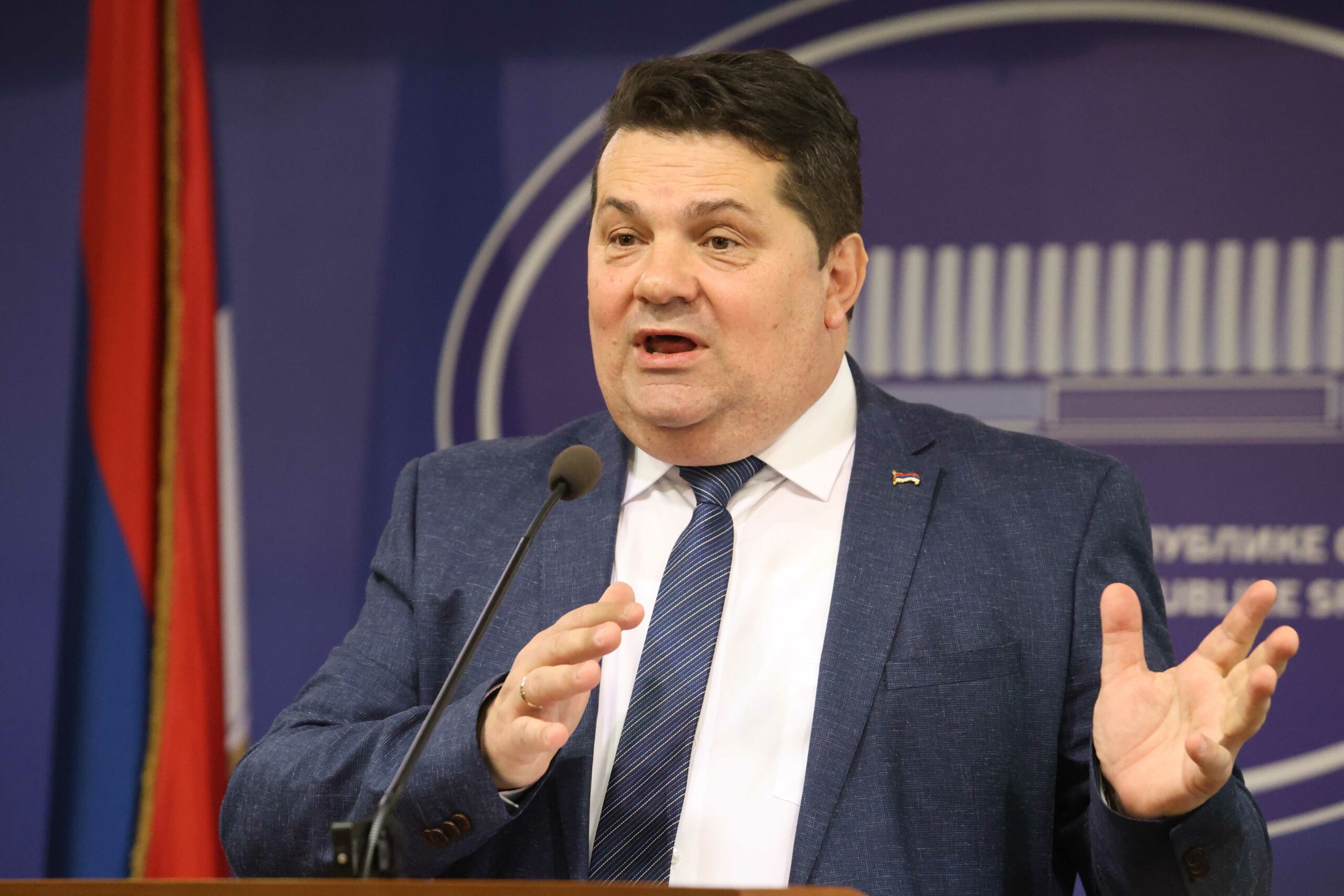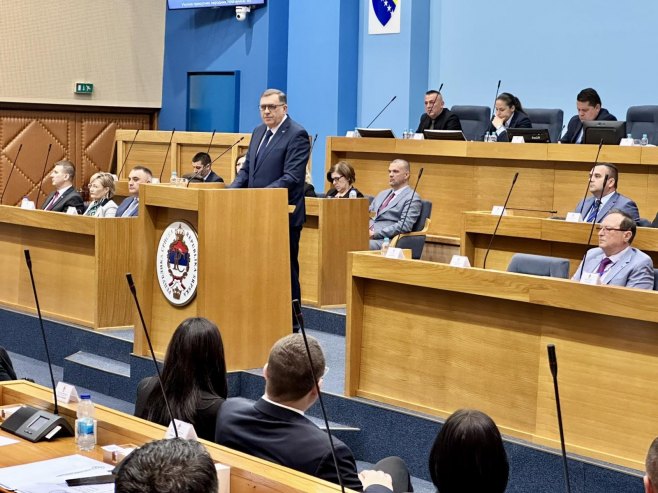The Hungarian government will never vote in favor of imposing sanctions on the President of Republika Srpska, Milorad Dodik, and the European Union will not be able to introduce them without Hungary’s vote. This was the message from Hungary’s Minister of Foreign Affairs, Péter Szijjártó, following a meeting in Budapest with Željka Cvijanović, the Serb member and Chairwoman of the Presidency of Bosnia and Herzegovina.
Cvijanović expressed gratitude for Hungary’s stance and understanding that this is a case of political persecution of a legitimately elected president of Republika Srpska based on a decision by an illegitimate foreigner. The two officials agreed that the key to resolving the greatest political and constitutional crisis in Bosnia and Herzegovina, caused by decisions of the unelected foreign official, lies in internal dialogue and returning the decision-making process to domestic institutions.
Without Hungary’s vote in Brussels, there will be no EU sanctions against the President of Republika Srpska. Hungarian officials are firmly committed to never allowing a political hunt against democratically elected representatives of Republika Srpska.
“We have never done it before, and we will never do it. As long as we are in power, it will never happen. We will never vote in favor. It will never be introduced. Unanimity is required. We consider this a political persecution,” said Szijjártó.
The process began with the illegal imposition of decisions, placing the unelected foreigner above the institutions. Even in the court verdict, as Chairwoman of the Presidency Željka Cvijanović reminded the Hungarian public, it is written that the President of Republika Srpska violated Schmidt’s decision by performing his constitutional duty. Cvijanović said it is disappointing that European countries are aware of this and still accept it.
“I am grateful to Hungary for not giving its vote when it comes to sanctions at the EU level. Hungary has for years shown itself to be the strongest in stating that political leaders cannot be sanctioned in such a way simply because it is the political will of someone somewhere in Europe,” said Cvijanović.
Hungary also believes that leaders in the Western Balkans should be engaged with directly, not discussed over their heads. Szijjártó reiterated this today. Speaking about what he described as the absurd and dangerous approach of Brussels and the European Union toward the Western Balkans, he concluded that decisions and statements undermining peace in the region are unacceptable.
“Peace and stability in the Western Balkans require continuous dialogue based on mutual respect. All Western European countries and all Brussels institutions must respect the decisions of leaders from the Balkans. It should be made clear that every country has the right to decide its fate and its leadership,” Szijjártó emphasized.
Not everyone in Europe, or in Bosnia and Herzegovina, shares this view. Among them is Foreign Minister Elmedin Konaković, who addressed NATO without the Presidency’s approval, calling for foreign military intervention on the territory of his own country. Serb ambassadors and consuls general believe that this call should be considered an act of treason and an attack on Bosnia and Herzegovina’s constitutional order through violent means. For Cvijanović, Konaković’s move is not surprising, as constant calls for lynching and sanctions come from political Sarajevo.
“Everything Konaković writes serves the interests of the Bosniak people, while completely disregarding the fact that in the other half of Bosnia and Herzegovina, there exists a different political will. It should be logical that forming a common position in Bosnia and Herzegovina requires harmonizing those different political wills,” Cvijanović stated.
Cvijanović is adamant – the state should belong to those who live in it and to domestic institutions, yet Bosnia and Herzegovina is currently faced with an overwhelming level of interventionism and has become a colony. She said that Bosnia and Herzegovina will reject the harmful services of Christian Schmidt once the Bosniaks decide to let go of them and agree with Serbs and Croats on common positions.
“But this will only happen when the foreign factor realizes that democracy means that institutions make decisions and that we should adhere to international law – not violate or change it through political conferences or conclusions, nor impose a dictatorial role that is unimaginable and unacceptable,” she added.
Cvijanović and Szijjártó also discussed joint projects, particularly in the field of education, where students from Republika Srpska have been granted scholarships to study in Hungary. They also reviewed a project in agriculture, through which 1,800 farmers received support for acquiring machinery.
Source: RTRS



